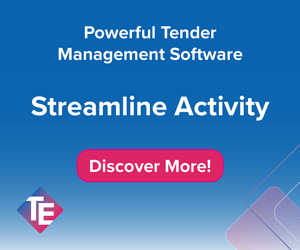Have you ever doubted yourself? Questioned why you are here despite your education, experience and accomplishments? Do you end up working even harder or holding yourself to even higher standards just to prove yourself?
This is imposter syndrome.
According to Complete Success™, imposter syndrome affects over 70% of high achievers, either periodically or chronically, meaning this is a real problem in the world of work.
In an industry where we like to win, we can put this pressure on ourselves. Not only does imposter syndrome have a cost to our mental health, but it can also have financial implications.
 APMP UK BIDx Roadshow arrived in Edinburgh on 25th April 2023, introducing a new, interactive workshop-style event.
APMP UK BIDx Roadshow arrived in Edinburgh on 25th April 2023, introducing a new, interactive workshop-style event.
Hosting the event was APMP member, Melissa Kerrison, with Paul Dykes as the guest facilitator from Broadleaf Global, and AM Bid as the proud sponsors of the event.
Broadleaf Global are an inspiring organisation focused on empowering individuals, teams and organisations to enable real and lasting change.
An Interactive One-Day Workshop Packed with Insightful Exercises
During the one-day workshop, Paul Dykes introduced various interactive group exercises to help explore how harnessing The Power Of How® can guide us on our journey through imposter syndrome.
As an icebreaker exercise, we were all asked to stand in a line on one side of the room and take a step forward for each described scenario we have personally faced. The result? We realised that we had a lot in common with the other unfamiliar faces in the room – we were all affected by Imposter Syndrome in one way or another.
Before moving on to the next activity, we were asked to rate (on a scale of 1 to 5) our ‘inner’ and ‘outer’ energy levels. A room average of ‘2’ for inner energy and ‘4’ for outer energy was achieved, demonstrating our willingness to appear more than what we are actually feeling inside. Paul warns that, if kept over a long period of time, this would eventually tire us out…
After digesting that food for thought, we were given an opportunity to dance around the room to music prepared by Paul. Every time the music would stop, we would partner with a nearby stranger to ask each other questions related to Imposter Syndrome.
Key takeaways from the exercise:
- Imposter Syndrome can mean slightly different things to each person
- We can give others good advice for dealing with Imposter Syndrome but we are bad at taking our own advice
- Even confident, successful people can be affected by Imposter Syndrome
This exercise helped us understand that everyone has a different perception of Imposter Syndrome and how it affects them in their workplace…
The Five Main Types of Imposter Syndrome
The Perfectionist: These individuals set extremely high standards for themselves and often feel like they have failed even if they have achieved success.
The Superman: These individuals push themselves to work harder and longer than anyone else to prove their worth.
The Natural Genius: These individuals believe that their success comes from innate talent or intelligence rather than hard work, fearing failure and being exposed as a fraud.
The Expert: These individuals feel like they are never knowledgeable or experienced enough, fearing they will be criticised or proven wrong.
The Soloist: These individuals prefer to work independently and may avoid asking for help or collaboration, feeling like they need to prove they can do it all on their own.
After being introduced to the main types of imposter syndrome, we explored the common traits of each personality, including its root cause and how it could affect an individual in the workplace.
After the exercise, it was quite clear that the effects of imposter syndrome were negative. However, many of us realised that we have experienced situations where we have projected similar qualities during work.
Paul helped us recognise that fear and uncertainty are at the core of this problem. To be able to overcome Imposter Syndrome, one must be able to have a ‘growth mindset’ and avoid a ‘fixed mindset’.
The Journey to Growth
There are typically five stages to achieving personal growth:
- Comfort zone – This is where we feel safe and secure. At this stage, we tend to stick to what we know and avoid taking risks or trying new things that might challenge our beliefs or abilities.
- Forest of uncertainty – This is the stage where we start to venture beyond our comfort zone and into unknown territory. It can be confusing and uncomfortable as we face new challenges, uncertainties, and obstacles. However, it’s an important stage for personal growth, as it encourages us to step out of our comfort zones and embrace new experiences.
- Learning grounds – At this stage, we start to gain new knowledge, skills, and insights that help us navigate the challenges. This can involve seeking out new information, learning from mistakes, and practicing new skills. It’s an important stage for personal growth as it helps us build confidence and competence in new areas.
- Fields of Growth – This is the stage where we start to see the fruits of our labour. It’s where we start to apply what we have learned and see positive changes in our work/lives. At this stage, we are more confident, resilient, and adaptable and have a stronger sense of purpose and direction.
- Back to comfort zone – Once we have achieved personal growth, we may be tempted to stay in the fields of growth indefinitely. However, it’s important to remember that personal growth is an ongoing process, and we need to continue to challenge ourselves and explore new opportunities to maintain our growth.
After acknowledging that there is indeed a journey to growth, the importance of accepting fear and uncertainty (particularly in our professional careers) became very apparent. To feel ‘enough’ and ‘confident’, we must be able to embrace this journey and acknowledge that we cannot reach the ‘fields of growth’ without first going through the ‘forest of uncertainty’ and ‘training grounds’. This is the natural process of growing and learning as an individual.
Personal Reflections
To conclude, I am very thankful to Paul Dykes and Broadleaf for delivering such an impactful one-day workshop on a very important topic within the workplace.
As this was my first APMP event as a young professional, the workshop was ideal for guiding me through unfamiliar territory and taking me on a journey towards meaningful growth. By the end of the event, I felt braver and more courageous to take on the challenges at work, as well as mindful of when my imposter syndrome traits would try to stop me.



Join the Conversation